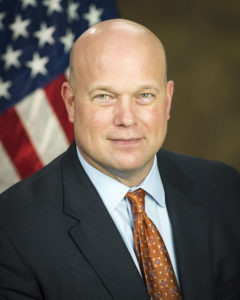In the final weeks of session, the Iowa legislature has an immediate opportunity to make strides toward solving public safety and workforce challenges by advancing a proven and tested solution: incentivize people on probation to complete education and vocational training. The “educational credits” being considered by the legislature would not only help Iowa fill a crushing workforce gap but also promise to reduce future crime while giving people on probation the chance to rebuild their lives and provide for their families – a move that is fully consistent with conservative values. Republicans should support this idea, and I urge the legislature to act swiftly in passing legislation toward this goal.
Iowa currently faces a workforce crisis, with more jobs to fill than there are applicants. While I applaud the Legislature’s and governor’s work to pass policy that creates an environment for economic growth, the reality is that without workers, Iowa businesses will not be able to continue to expand here. Roughly 32% of businesses reported that they have current vacancies and roughly half of job openings remain unfilled. In this context, many businesses (85%) have decided to forgo further growth and are focused on sustaining the current size of their business, meaning that Iowa is missing out on critical economic gains.
Iowa also faces a serious recidivism problem, which takes workers out of Iowa’s labor pool. More than one-third of the persons released from prison in Iowa in 2016 returned sometime in the next three years. In 2018, about 40 percent of the people in Iowa prisons were there for probation and parole violations—about 16 percent for “technical” violations that don’t even constitute a new criminal offense.
Education and vocational training for persons on community supervision is one of the most effective ways to not only reduce future criminal activity, but also prepare non-violent offenders to re-enter the workforce. A RAND “meta-analysis”—a study that incorporates all known research on an issue—found that inmates who participate in correctional education programs are 43 percent less likely to recidivate. Few interventions have been shown to be anywhere near as effective in reducing recidivism as education and job training. When this proposal passes, statistics should be tracked to ensure the success of the law.
Providing people on probation with an incentive to pursue educational attainment will not only make communities safer, it will support families, giving those with criminal records a chance at a fresh start. This kind of incentive-based programming is not “soft on crime”; it’s pro-public safety. And it’s fully aligned with conservative principles and values.
Employment helps to cement the connection between responsibility and reward. The daily rhythm of work helps to anchor people to their communities and their families, building the social and community ties that inhibit criminal activity. What would you rather have: A probationer who is rootless, living on the economic edge, with all the empty time that comes with unemployment? Or one who supports their family through productive, fulfilling work? Merely to ask the question is to answer it.
Moreover, the kind of earned credit system proposed in Iowa is not new. Eighteen states have some form of probation credits today, including conservative states like Missouri, South Dakota, Arkansas, Louisiana, Mississippi, Texas, Kentucky, and South Carolina. A study of Missouri’s system—one of the oldest and most robust in the country—found that more than 36,000 people earned credits during the first three years following implementation. Ultimately, the credits were linked to a 18% reduction in the state’s supervised population in just under 3 years, and probation officer caseloads shrunk, providing them more time and resources to focus on individuals who may pose a greater risk to public safety.
To be clear: I believe criminal punishment is necessary and appropriate. But my political beliefs and my religious convictions compel me to also temper that punishment with the assistance a human being needs to get back on their feet and provide for their family. All of us are better off if they can find stable housing, gainful employment, and reconnect to family and society. This is a moral duty, as well as sensible policy, because it makes us all safer in the long run.
Family, work and responsibility: these are conservative values. We should be doing everything we can to incentivize people on probation to embrace these values. Taking this step to improve probation and supervision in Iowa is an important first step and Republicans should embrace it.

FORMER ACTING ATTORNEY GENERAL MATTHEW G. WHITAKER
Matt Whitaker is the Former Acting Attorney General under President Donald Trump, and a Senior Fellow at the American Conservative Union Foundation.



